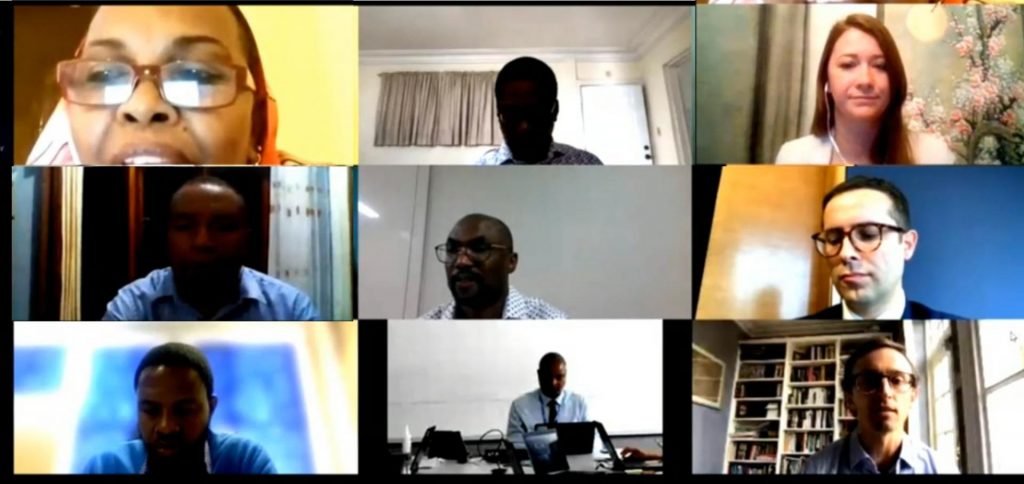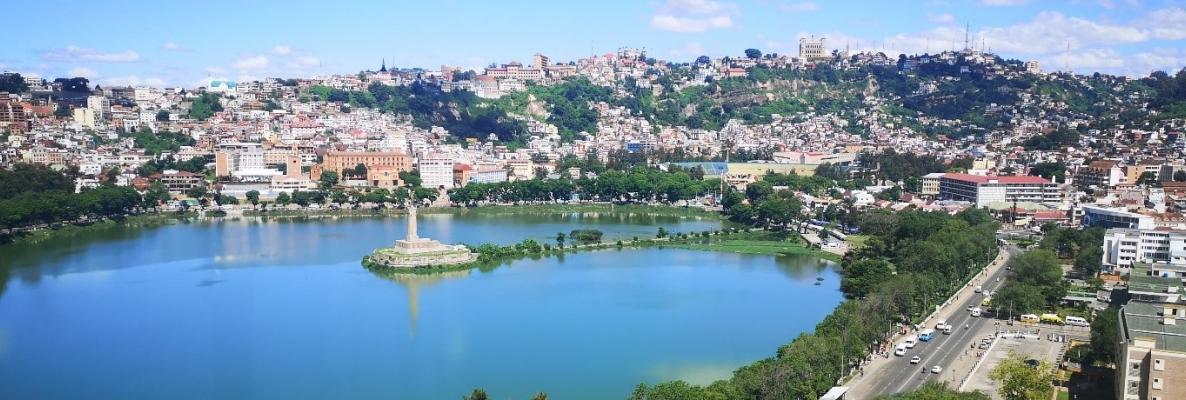Article originally published in UNFCCC Newsroom, 4 June 2020.
UN Climate Change News, 4 June 2020 – At an event organized under the 2020 June Momentum for Climate Change, participants addressed the critically important question of how to improve the delivery of support to the Least Developed Countries (LDCs) to effectively address the impacts of climate change, including in the context of emerging challenges such as the COVID-19 pandemic.
The LDCs continue to face increasing pressure from natural and human-induced shocks given their structural constraints and limited capacities. Any new wave of shocks, such as the current COVID-19 pandemic, stretches their existing vulnerabilities. According to the LDC Group Chair, Mr. Sonam Wangdi from Bhutan, the LDCs are only receiving 0.6% of the USD 97 billion needed to meet their current climate action needs, and their needs will increase by several orders as we approach 2050.
Mr. Sonam Wangdi, LDC Group Chair, said: “We are facing truly unprecedented challenges – the COVID-19 pandemic and frequent and severe climate change impacts, all in addition to existing development challenges. We need to scale up efforts to protect ourselves from these shocks.”

First row, left to right: Ms. Hana Hamadalla Mohammed (LEG Chair, Sudan), Mr. Kénel Delusca (LEG Vice Chair, Haiti), Ms. Nicole Lulham (LEG Member, Canada); Second row, left to right: Mr. Adao Barbosa Soares (LEG Member, Timor-Leste), Mr. Pa Ousman Jarju (GCF secretariat), Mr. Manuel José Salidas (COP Presidency, Chile); Third row, left to right: Mr. Mokoena France (Lesotho), Mr. Motsomi Maletjane (UNFCCC secretariat) and Mr. Archie Young (Incoming COP Presidency, UK).
Many countries are prioritizing the formulation of their National Adaptation Plan (NAP) this year. It takes 1 to 2 years to get a proposal cleared to access funding for formulating a NAP and for funding to become available to countries to carry out their work. This timeline could be longer under interruptions such as those related to the COVID-19 pandemic. Support must therefore be delivered differently to align with future needs and challenges.
Mr. Mokoena France from Lesotho said: “There is existing information and work that can inform the formulation of our NAP by the end of the year. We need technical assistance to put this together the information and to formulate the NAP expeditiously.”
Means of stepping up support
The LEG is exploring new ways of supporting the LDCs to advance the preparation and implementation of NAPs through the Open NAP initiative. The initiative provides an opportunity for the LEG to crowdsource and collaborate with a wide range of actors, virtually, in supporting the LDCs formulate effective adaptation plans. These new efforts need to be enhanced and well supported to ensure LDCs can make steady progress. Given the experience of the LEG in supporting the LDCs since its establishment in 2001, the LEG can play an important role in providing technical support for the LDC 2050 Vision and its initiatives, and in particular the LIFE-AR initiative.
“The LEG is committed to effectively support the LDCs during these difficult times to ensure they achieve their goals of advancing their adaptation plans and implementing activities that will help them build a safer future,” said LEG Chair Ms. Hana Hamadalla Mohammed.
The Green Climate Fund (GCF) is increasing its efforts to prioritize the LDCs when providing support. New solutions are being explored, including providing more direct support to the LDCs in developing proposals for implementation, reducing project development times and technical assistance to the LDCs.
The GCF also continues to encourage the LDCs to increase the number of private sector and civil society partners to support the implementation of national adaptation actions, as building national capacity to implement GCF projects is key to building lasting success.
The Global Environment Facility (GEF), through the Least Developed Countries Fund (LDCF), continues to support the LDCs in implementing their immediate adaptation priorities, and those with low utilization rates are given priority. LDCF funds can be combined with GEF Trust Funds, as well as with funding from the GCF to scale up adaptation action. With this approach, silos are being broken down and coordination is improving to ensure that adaptation needs are implemented more effectively.
Participants at the June Momentum event offered suggestions on the way forward. These included the need to review and address the short-term needs of LDCs to advance on their NAPs; the GCF to consider applying flexibility in project work plans on required steps such as stakeholder consultations that are not currently possible; maximizing synergy between climate change action and COVID recovery; building momentum and ambition to achieve 1.5 degrees; and scaling up means of implementation, protecting nature, averting, minimizing and addressing loss and damage.
The event was based on the outcomes of the LEG stocktaking meeting held in February 2020, in Antananarivo, Madagascar.
Related links
June Momentum for Climate Change
LEG event on “Enhancing support to the LDCs: Insights from a recent stocktaking meeting of the work of the LEG”
Stocktaking meeting on the work of the LEG
LEG resources and contact information
Website: https://unfccc.int/LEG
NAP Central: https://www4.unfccc.int/NAP
E-mail: leghelp@unfccc.int


